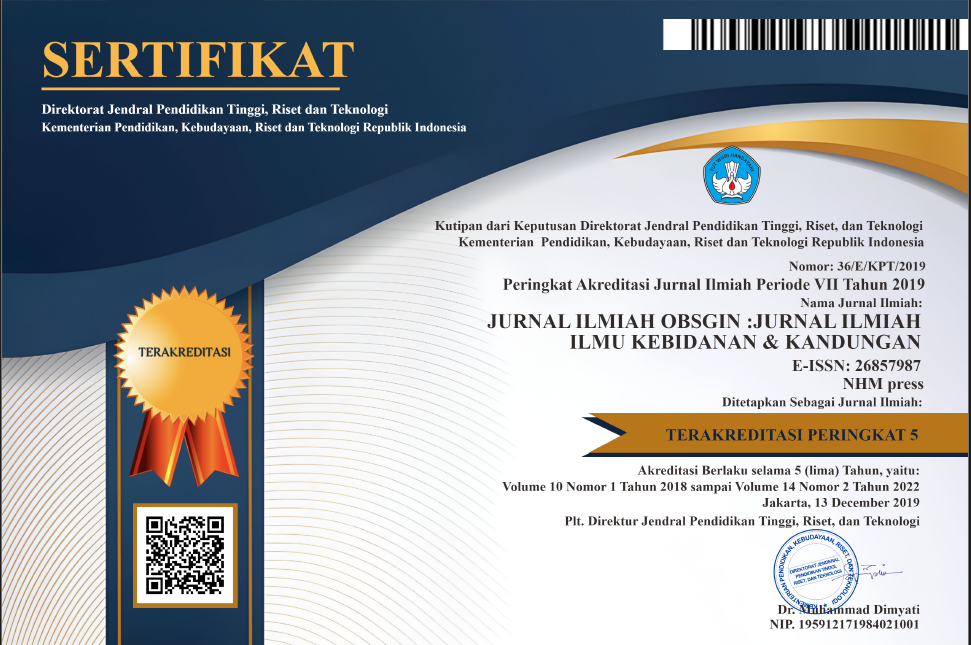HUBUNGAN AKTIVITAS FISIK DENGAN KENAIKAN BERAT BADAN PADA AKSEPTOR KB SUNTIK 3 BULAN DI PMB RIZKA DEVI SAVITRI
Abstract
Weight gain or gain is a condition in which a person's total body weight exceeds normal or exceeds the ideal body weight. Weight gain is one of the side effects of 3-month injectable contraception. By doing regular physical activity weight gain can be controlled. The purpose of this study was to determine the relationship between physical activity and weight gain for 3-month injection contraceptive acceptors at Rizka Devi Savitri Independent Midwifery Practice. The research design used a quantitative research design which is a correlational analytic research type, namely with a cross sectional research approach. The total population was 60 people and the sample was 52 respondents. Sampling was taken using a simple random sampling technique. The research data were analyzed bivariate using the Chi Square test. The results of the study obtained from 52 respondents there were 13 people (25%) who did light activities, all of them experienced weight gain, 26 people (50%) did the moderate physical activity, there were 7 people who did not gain weight and 19 other people experienced weight gain body weight, while the respondents with heavy intensity physical activity were as many as 13 people (25%) and all did not gain weight. Based on statistical tests using the chi square test, the significance value (ρ) is 0.00 which is less than the value α = 5% (ρ = 0.05), so it can be concluded that there is a correlation between physical activity and weight gain in 3 month injection contraceptive acceptors at Rizka Devi Savitri Independent Midwifery Practice.











